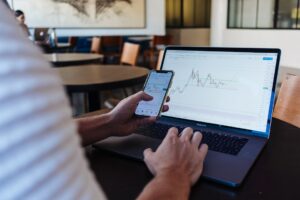Exploring the Risks and Rewards of Micro Account Forex Trading
Forex trading has become increasingly popular over the years, attracting a wide range of investors, from large financial institutions to individual retail traders. The allure of potentially high profits and the ability to trade 24 hours a day, five days a week, have made forex trading an attractive option for many. However, like any investment, forex trading carries its own set of risks and rewards.
One way for retail traders to dip their toes into the forex market is through micro account forex trading. Micro accounts are designed for those who are new to forex trading or have limited capital to invest. These accounts allow traders to trade in smaller lot sizes, typically 1,000 units of the base currency. This allows traders to test their strategies and gain experience in the market without risking large amounts of capital.
One of the main advantages of micro account forex trading is the low barrier to entry. Unlike other financial markets, where substantial amounts of capital are required to start trading, micro accounts can be opened with as little as $5. This makes forex trading accessible to a wider range of individuals, including those with limited financial resources.
Micro account forex trading also allows traders to manage their risk more effectively. With smaller lot sizes, traders can limit their exposure to the market and control the amount of money they are willing to risk on each trade. This is particularly important for beginners who are still learning the ropes of forex trading and may not have the experience to accurately assess market conditions and make informed trading decisions.
Another advantage of micro account forex trading is the ability to trade with real money. While demo accounts provide a valuable learning experience, trading with real money introduces a psychological element that cannot be replicated in a simulated environment. Trading with real money allows traders to experience the emotional highs and lows that come with trading, helping them develop discipline and emotional control, which are crucial for long-term success in the forex market.
However, it is important to note that micro account forex trading also carries its own set of risks. The most significant risk is the potential for loss. While the small lot sizes reduce the amount of capital at risk on each trade, losses can still add up if proper risk management strategies are not implemented. Traders should always set stop-loss orders to limit potential losses and avoid overleveraging their positions.
Another risk associated with micro account forex trading is the potential for slippage. Slippage occurs when the price at which a trade is executed differs from the expected price. This can happen during periods of high market volatility or low liquidity, and can result in unexpected losses or reduced profits. Traders should be aware of the potential for slippage and take measures to minimize its impact, such as trading during periods of high liquidity or using limit orders instead of market orders.
In addition, micro account forex trading may be subject to higher transaction costs. Some brokers offer micro accounts with lower spreads and commissions, but others may charge higher fees to compensate for the smaller trading volumes. Traders should carefully consider the cost structure of their chosen broker and factor in transaction costs when calculating potential profits.
Despite the risks, micro account forex trading can be a valuable learning experience for beginner traders. It allows them to gain hands-on experience in the forex market, develop trading strategies, and build confidence before moving on to larger trading accounts. It also provides an opportunity to test different trading systems and indicators without risking significant amounts of capital.
In conclusion, micro account forex trading offers a low-cost and accessible way for retail traders to enter the forex market. It provides an opportunity to learn and gain experience in a real trading environment, while limiting the amount of capital at risk. However, traders should be aware of the risks involved and implement proper risk management strategies to ensure long-term success.






